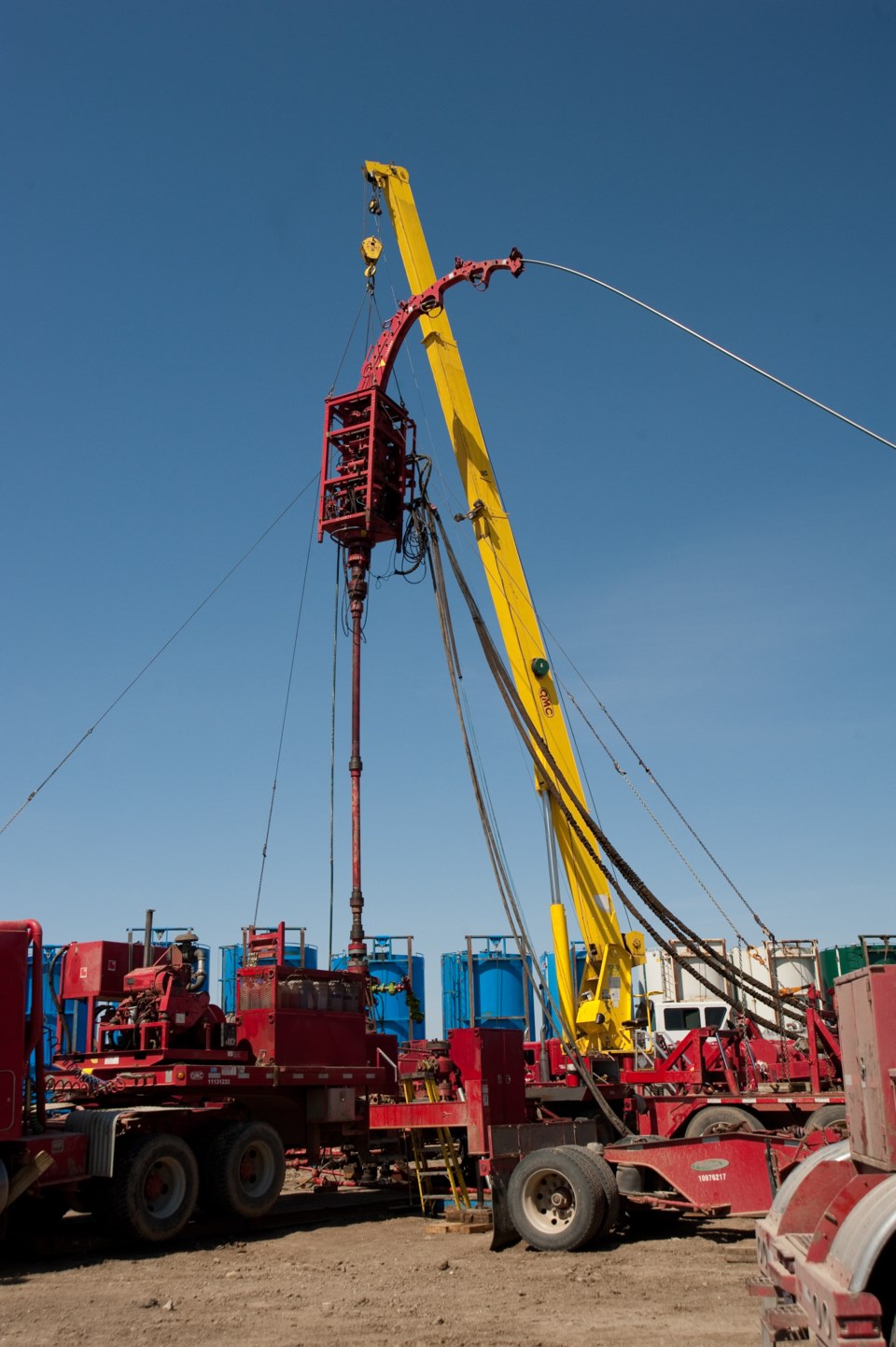Perhaps the most interesting, and applicable, presentation offered at the Williston Basin Petroleum Conference in Regina May 2-4 was one on refracs.
That’s where you take an existing well that was initially fracked, but whose production has now largely petered out. You come in and frac it again, and voila, in most cases, the well responds and production is renewed. The presentation, by Michael Nelson of the Ministry of Environment, noted that in the Bakken, “The average refrac restores oil rate to 70 per cent of the initial oil rate, with a median value at 80 per cent of initial oil rate.”
It makes old wells somewhat new again, breathing new life into them.
The interesting thing about this is what potential it could have, especially in areas that were first developed in the Bakken play. Back when Petrobank morphed into Petrobakken, one of their senior executives made a presentation on how they had gone through several evolutions of a standard Bakken well, from just a few frac stages, to two legs and numerous frac stages.
When developing an area, oil companies will typically go for their best prospects first. But paradoxically, they are also doing so with less mature technology and techniques compared to what will eventually be developed and deployed in that field over time. Thus, the best prospects of the initial Bakken boom may have had only eight stages of fracking, where that same well, drilled today, 10 years later, would have dozens of frac stages.
There are other benefits to refracking a well. It’s already drilled – which is obvious. Existing infrastructure can be used – like flowlines and batteries.
With anything in the oilpatch, it’s probably not going to work all the time. Some companies report 100 per cent success rates in their drilling programs, but one producer once explained to us that could probably be taken with a grain of salt. So maybe not all refracs will be stellar.
It also begs the question of why we haven’t seen refracs become much more common? If they do work well, why haven’t producers jumped at it?
Del Mondor, president, CEO and owner of Weyburn-based Aldon Oils Ltd, attended the conference. Asked if he would consider doing refracs, he replied, “Absolutely.
“We would be very interested in that. I think there’s been enough of that that’s gone on in recent years that we can track the performance of refracking.”
The fracking fleet in southeast Saskatchewan has greatly diminished with this downturn. Where there were once seven fracking operations, there are now three, and two of those are in the midst of a merger. If refracs caught on in a big way some day, maybe that number would grow again.
Mondor added, “Those early fracs and early movements in the Bakken, we’ve just gotten better and better at this. It’s our responsibility, as producers, to produce this resource for this province, in the most effective manner possible. Refracking is part of that. Hopefully it not only continues, but may even accelerate.”
Mondor think’s someone will come up with some technology to do it as successfully as possible, but, ironically, the later ones will probably be more successful than the earlier ones.
It’s hard to argue with that.




